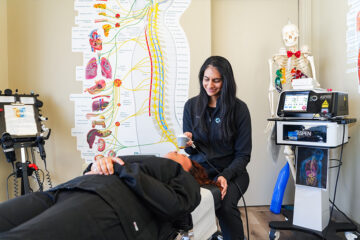Understanding Depression: Causes, Treatment, and Pathways to Recovery

Depression is a complex and deeply personal mental health condition that affects millions of people worldwide. It goes beyond temporary sadness or emotional lows, impacting an individual’s ability to function, enjoy life, and maintain relationships. Whether it’s triggered by life events, genetics, or underlying health issues, depressioncan feel overwhelming, but help is available. Seeking professional support, like the services offered by Greene Psychology Group, is a critical step toward recovery and wellness. This article explores the causes, symptoms, and treatments for depression, as well as strategies for finding support and building resilience.
What is Depression?
Depression, clinically referred to as major depressive disorder (MDD), is a mood disorder characterized by persistent feelings of sadness, hopelessness, and a lack of interest or pleasure in activities. It affects not only mood but also physical health, cognitive function, and daily behavior. While the experience of depression varies from person to person, it often disrupts relationships, work performance, and overall quality of life.
Common Types of Depression
There are several types of depression, each with distinct features:
- Major Depressive Disorder (MDD): Characterized by severe symptoms that last for at least two weeks and interfere with daily functioning.
- Persistent Depressive Disorder (Dysthymia): A chronic form of depression lasting two years or more, with less severe but longer-lasting symptoms.
- Postpartum Depression: A type of depression that occurs in some women after giving birth, often linked to hormonal changes and the challenges of new parenthood.
- Seasonal Affective Disorder (SAD): Depression that follows a seasonal pattern, typically worsening during the fall and winter months due to reduced sunlight exposure.
- Bipolar Disorder: A condition that involves alternating episodes of depression and mania (extreme highs or hyperactivity).
Causes of Depression
Depression often results from a combination of biological, psychological, and environmental factors. Understanding these causes can help in identifying appropriate treatments and coping strategies.
1. Biological Factors
- Genetics: A family history of depression may increase an individual’s susceptibility.
- Brain Chemistry: Imbalances in neurotransmitters, such as serotonin and dopamine, can contribute to depressive symptoms.
- Hormonal Changes: Hormonal shifts, such as those during pregnancy, menopause, or thyroid imbalances, can trigger depression.
2. Psychological Factors
- Trauma: Experiencing physical, emotional, or sexual abuse can increase the risk of depression.
- Personality: Certain personality traits, such as low self-esteem or a tendency toward pessimism, may make individuals more vulnerable.
- Stress: Chronic stress from work, relationships, or financial difficulties can lead to depressive episodes.
3. Environmental Factors
- Life Events: Major changes, such as the loss of a loved one, divorce, or unemployment, can act as triggers.
- Social Isolation: A lack of support from friends, family, or community can exacerbate feelings of loneliness and depression.
- Substance Abuse: Drug or alcohol abuse can both contribute to and result from depression.
Recognizing Symptoms of Depression
Identifying the symptoms of depression is the first step toward seeking help. While symptoms vary, common signs include:
Emotional Symptoms
- Persistent feelings of sadness, emptiness, or hopelessness.
- Loss of interest or pleasure in activities once enjoyed.
- Irritability or frustration, even over small matters.
Physical Symptoms
- Fatigue or lack of energy, making everyday tasks feel overwhelming.
- Changes in appetite or weight, such as overeating or significant weight loss.
- Sleep disturbances, including insomnia or excessive sleeping.
Cognitive Symptoms
- Difficulty concentrating, making decisions, or remembering details.
- Negative thought patterns, such as feelings of worthlessness or excessive guilt.
- Suicidal thoughts or behaviors.
If you or someone you know is experiencing symptoms of depression, it’s essential to seek professional help. Early intervention can prevent the condition from worsening and improve the chances of recovery.
Treatment Options for Depression
Depression is a treatable condition, and many people experience significant improvement with the right combination of therapies. Treatment plans are often tailored to the individual’s specific needs and circumstances.
1. Psychotherapy
- Cognitive Behavioral Therapy (CBT): Focuses on identifying and changing negative thought patterns and behaviors.
- Interpersonal Therapy (IPT): Addresses relationship issues and their impact on mental health.
- Psychodynamic Therapy: Explores unconscious patterns and unresolved conflicts to address the root causes of depression.
2. Medication
Antidepressant medications, such as selective serotonin reuptake inhibitors (SSRIs) or serotonin-norepinephrine reuptake inhibitors (SNRIs), are commonly prescribed to manage depression. These medications help balance brain chemicals and reduce symptoms.
3. Lifestyle Changes
- Regular Exercise: Physical activity releases endorphins, which can improve mood and energy levels.
- Healthy Diet: A balanced diet rich in nutrients supports overall mental health.
- Stress Management: Practices such as yoga, meditation, or deep breathing exercises can reduce stress and enhance emotional well-being.
4. Support Groups
Joining a support group allows individuals to connect with others who understand their experiences, providing a sense of community and encouragement.
5. Alternative Therapies
Complementary treatments, such as acupuncture, mindfulness, or light therapy (for SAD), may help alleviate symptoms and improve quality of life.
Coping Strategies for Managing Depression
In addition to professional treatment, adopting healthy coping strategies can support your journey to recovery:
- Build a Support Network: Surround yourself with friends, family, or community members who provide encouragement and understanding.
- Set Realistic Goals: Break tasks into smaller, manageable steps to avoid feeling overwhelmed.
- Prioritize Self-Care: Make time for activities that bring you joy and relaxation.
- Seek Professional Help Early: Don’t hesitate to consult a mental health professional if you notice signs of depression.
- Monitor Your Progress: Keep a journal to track your emotions, triggers, and improvements over time.
The Importance of Seeking Professional Help
While self-help strategies are valuable, professional support is often necessary to address the underlying causes of depression and develop an effective treatment plan. Mental health professionals provide a safe and supportive environment for individuals to explore their feelings, gain insights, and learn coping skills.
Why Choose Greene Psychology Group for Depression Treatment
Choosing the right provider is a critical step in your journey to overcoming depression. Greene Psychology Group offers expert care and compassionate support tailored to your unique needs.
Experienced Professionals
The team at Greene Psychology Group consists of licensed and experienced mental health professionals specializing in depression treatment. Their expertise ensures that you receive the highest standard of care.
Personalized Approach
Greene Psychology Group recognizes that every individual’s experience with depression is unique. They create customized treatment plans that address your specific challenges, goals, and circumstances.
Evidence-Based Therapies
The practice utilizes evidence-based therapies, including CBT and IPT, to provide effective and proven solutions for managing depression.
Supportive Environment
Greene Psychology Group fosters a welcoming and non-judgmental environment where clients can feel safe discussing their concerns and working toward recovery.
Comprehensive Services
In addition to treating depression, Greene Psychology Group offers a range of mental health services designed to support overall well-being. Whether you’re seeking individual therapy, couples counseling, or assistance with anxiety or trauma, their team is equipped to help.
Depression is a challenging but treatable condition. With the right support, you can regain control of your life and find a path to recovery. Contact Greene Psychology Group today to learn more about their services and take the first step toward better mental health.
Leave a reply
You must be logged in to post a comment.











